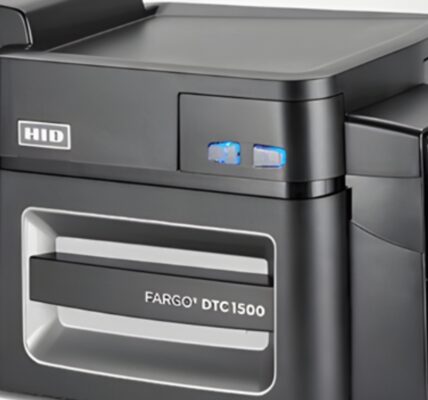Sadly, the latest studies show that cyber threats are becoming more complex, and their number is growing steadily. According to Gartner, around 45% of organizations will suffer the consequences of a supply chain attack by 2025, so it’s time for everyone to pay more attention to these events.
Nowadays, individuals and companies store information on digital platforms, and protecting it has become a top priority, considering the abundance of digital threats it exposes. Traditional systems have several weaknesses, leaving them vulnerable to data breaches, hacking incidents, identity thefts, and ransomware attacks. However, the digital era could provide us with the solution to slowing down cyber threats in the form of blockchain, which could revolutionize security.
Blockchain is usually regarded as a valuable legal and financial tool. Still, it has several other applications, and security is one of them because the technology can protect infrastructure and data, considering it’s an open digital ledger at its core. Experts say blockchain can reimagine the entire cybersecurity environment by powering more complex ecosystems.
Here is what you should know about it.
A Recap of Blockchain Technology
Blockchain is an innovative technology that has gained ground over the last few years in all industries because it functions like a distributed ledger that enables the movement and storage of data in safe conditions. Blockchain is usually associated with cryptocurrencies, and people dive into gaining knowledge about it when they try to make a BTC price prediction or identify evolution patterns for other digital assets. The nodes in the blockchain ecosystem guarantee the legitimacy of transactions before adding them to the distributed database. No one can interfere with the transaction after it’s added to the blockchain. This feature makes blockchain one of the safest and most dependable methods of sharing and storing data.
Blockchain technology is regarded as a safer alternative to traditional centralized systems because it does not have a central authority governing it. It’s mainly used in the banking and FinTech sectors to transfer funds worldwide without the interference of an intermediary.
Here is How Blockchain Impacts Cybersecurity
Improved Data Security
One of the main benefits of blockchain technology is its ability to boost data security. Organizations that rely on traditional centralized databases keep their data in a single location, which makes them vulnerable to breaches. If they switch to blockchain technology, their data is stored on a distributed network, where each node contains a copy of the information.
To compromise or change data on the blockchain, a cybercriminal would have to control the majority of nodes simultaneously, which is almost impossible. However, blockchain is currently one of the best solutions for protecting sensitive data like medical information, bank records, or personal details.
Smart Contracts
Smart contracts were first introduced on the Ethereum network, but other chains were quick to adopt them as they meet the market’s need for a solution to complete transactions without the interference of a third party. Smart contracts expanded blockchain technology’s influence beyond data security because they are terms and conditions stored on the network that facilitate the transfer of digital assets.

Smart contracts are designed to run automatically and saved on the distributed ledger so the operations are carried out automatically when the conditions are met. Because no one else is involved besides the parties that establish the conditions of the smart contract, they are more efficient and secure than other traditional alternatives. Smart contracts can be used in several sectors, from supply chain management to finance because they enhance the confidence and security of digital transactions.
Decentralized Architecture
Another important benefit of blockchain technology is its decentralized architecture. It’s an innovative feature with multiple points of control, making it more challenging for hackers to control or compromise the system. All the nodes in the system hold copies of data, and to change it in any way, the consensus of the entire network is required, which is nearly impossible to obtain. Therefore, cybercriminals cannot alter data stored on the blockchain because they are detected before doing anything.
Immutable Records
When a transaction is recorded, it cannot be changed or removed from the blockchain since the data stored there is immutable. This protects the integrity of the data and lessens the likelihood of data manipulation. Applications requiring high data security, like supply chain management, financial transactions, and medical records, will find this functionality especially helpful.
Public Key Cryptography
Blockchain technology uses public key cryptography to guarantee secure transactions. Transactions are signed using the user’s private key, which is distinct for each user. Because of this, intercepting and changing transactions without the user’s private key is nearly impossible.
Advanced Encryption
Blockchain encrypts its data using the most cutting-edge technologies available because anyone may examine the ledger, whether a public or private chain. In an Internet of Things (IoT) ecosystem, this helps businesses encrypt communications, authenticate devices, verify configuration changes, and find confidential devices.
Collective Consensus
Sophisticated algorithms continuously scan the chain without requiring a central authority for anomalies, suspicious activity, and false positives.

Because of this, even if one copy of the chain is compromised, the others will be able to locate and isolate the problem area swiftly.
Identity Management
Blockchain technology can establish a safe and decentralized identity management system. On a blockchain, which is safe and impenetrable, users can save their identity information instead of depending on centralized systems that are open to hacking.
Supply Chain Security
Blockchain technology can help make supply chains transparent and safe. Businesses can be sure their products are genuine and unaltered by tracking them and their movements on the blockchain.
Cyber Threat Intelligence
Cyber threat intelligence can be shared on a decentralized platform powered by blockchain technology. By exchanging information about threats and assaults, organizations can collaborate to swiftly and efficiently detect and address cyber risks.
Blockchain technology could improve cybersecurity in various ways because it’s a decentralized system that powers digital signatures and immutable records.



